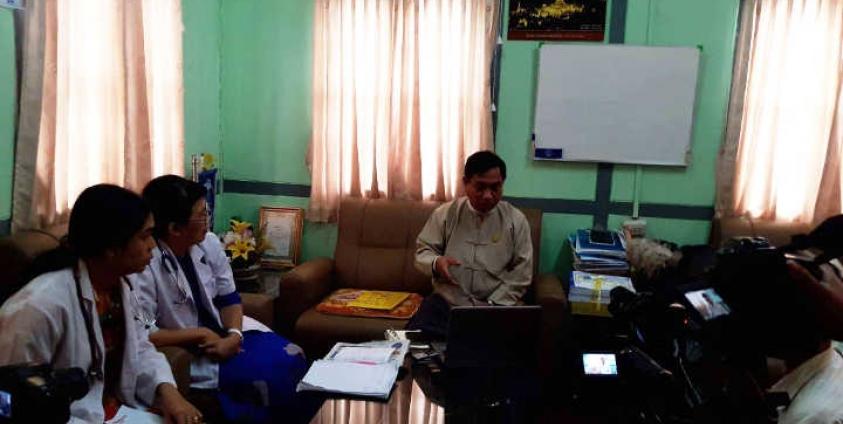A woman in Kayin (Karen) State has died of swine flu, one of just two diagnosed cases in the state, medical officials at the Kayin State General Hospital confirmed on August 15.
During a press conference, Dr Kyaw Myint, the hospital’s medical superintendent, said that out of the state’s 14 suspected cases, the hospital has confirmed two patients with H1N1, or swine flu, including the deceased.
Ma Yoon Pa Pa Hlaing passed away at 11:30am on August 11, the same day she was admitted to the hospital. Her case of swine flu was confirmed by the National Health Laboratory. The other patient with a confirmed case, Shin Pyinnyar Wuntha, 18, is recovering now, Dr Kyaw Myint said.
“On a state-scale, there are 11 [suspected H1N1] patients in Hpa-an General Hospital and one patient in Myawady. Currently, two cases have been confirmed in our hospital. One of them is the deceased, Ma Yoon Pa Pa Hlaing, and the other is a monk,” he told KIC News.
Public alarm over Myanmar’s seasonal swine flu outbreak has prompted the Ministry of Health and Sports to reach out to the World Health Organization for assistance in combatting the virus, which is a strain of influenza.
Stephan Paul Jost, WHO’s country representative in Myanmar, told VOA last week that Myanmar’s seasonal outbreak of the flu was “not in itself a cause for alarm”. The number of diagnosed cases are also not out of line from the usual, seasonal flu burden, he said.
Myanmar records flu cases, and deaths, annually. Since the first case of H1N1 was confirmed on July 21, there have been 204 diagnosed cases and 23 deaths, state media reported on August 12.
Amid outcry over the virus and demands that emergency protocols to be put in place, the Health Ministry has stepped up efforts to try to quell panic, and raise awareness about how to contain the spread of infection. Health officials in Kayin State have gone township-to-township in order to raise awareness, and emergency medical supplies have been prepared for each township, Dr Kyaw Myint said. Private hospitals and clinics have also been instructed to keep watch for any cases, and to report them to the Health Ministry. No such cases have been reported, however.
Symptoms of H1N1 can include a high fever over 38 degrees Celsius, a runny nose, sneezing, coughing, sore throat, body aches, headache and fatigue. To avoid spreading or contracting the disease, the WHO advises frequent handwashing.
“The public is very scared,” said Dr Win Win Myint, a general physician from the Hpa-an General Hospital, adding that the virus only posed a serious health threat to people already in poor medical conditions, the elderly and young children. He advised people to rest, eat healthy, fresh foods and to follow the ministry’s health guidelines.








